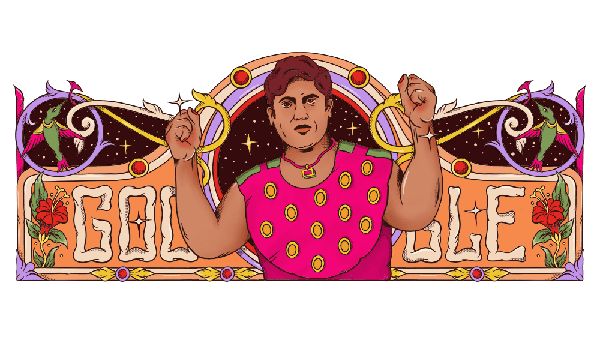Hamida Banu: Google Doodle Honors India’s First Female Wrestler
Hamida Banu is widely recognized as the pioneer of female wrestling in India. Her commanding presence in the ring intimidated her male counterparts and she defeated many renowned male wrestlers of her time to establish herself as a formidable wrestler.
Hamida Banu is a name that is hard to ignore in Indian wrestling history. As the first Indian woman wrestler, she paved the way for generations to come. On May 4, Google Doodle celebrated the first Indian woman wrestler. Let’s take a trip down memory lane and explore Hamida Banu’s journey to fame.
During the 1940s and 1950s, wrestling in India was considered a manly sport and it was unthinkable for a woman to pursue it as a professional career choice. However, Hamida Banu challenged this notion and became a renowned wrestler.
She would often throw an open challenge to her male contemporaries, saying “Beat me in a bout and I’ll marry you.” Hamida Banu became popular as the “Amazon of Aligarh,” where she resided in Uttar Pradesh and earned a fan following that many of her male counterparts could only dream of.
Hamida Banu: Google Doodle Honors India’s First Female Wrestler
Banu fought many bouts across the country and defeated her male adversaries. She reduced the wrestling champion of Patiala to dust and thrashed Chhote Gama Pahalwan, a wrestler with close ties to the Maharajah of Baroda.
During her peak, Banu’s personality and diet often made headlines. She weighed approximately 108 kg and was 1.6 m tall. She consumed 5-6 liters of milk daily and also developed a liking for fruit juice. Her diet also included biryani, mutton, almonds, and butter.
Renowned Indian author Maheshwar Dayal gave an account of Hamida Banu in a book published in 1987 and described her wrestling technique as identical to that of male wrestlers. “She used to fight exactly like a male wrestler,” Dayal wrote. “However, some said that Hamida Pahalwan and male wrestlers would make a secret pact and the opponent would deliberately lose.”
Reports suggest that Banu faced financial difficulties during her last days and had to resort to selling milk and homemade cookies as a roadside vendor to make ends meet.


